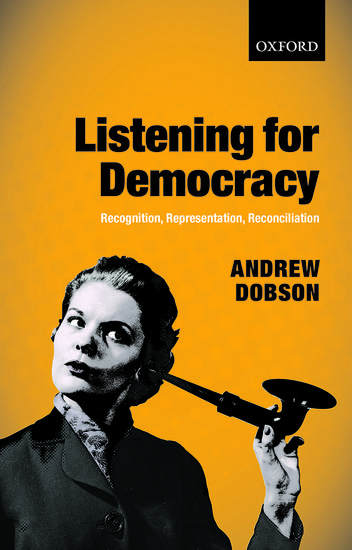By Andrew Dobson
“Noisy and aggressive,” “childish,” “over the top,” “pointless.” These are just a few recent descriptions of Prime Minister’s Questions – the most watched event in the Parliamentary week.
Public dismay at PMQs has led the Speaker, John Bercow, to consult with party leaders over reform. The Hansard Society asked focus groups what they thought of PMQs as part of its annual look at public engagement. Nearly half said the event is “too noisy and aggressive”, the same proportion as those who felt that MPs behave unprofessionally. Meanwhile, a majority of 33% to 27% reported that it put them off politics. Only 12% said it made them “proud of our Parliament”.

So would it help if politicians listened to each other little bit more and shouted at each other a little bit less? The fact that PMQs is simultaneously the most watched and the least respected Parliamentary event is significant. No doubt we watch it precisely because we enjoy the barracking and the bawling, and there is always the possibility of grudging admiration for a smart bit of wordplay by one or other of the combatants. Parliamentary sketch writers nearly always judge the winner of PMQs on the basis of which of the party leaders has bested the other in terms of quips and ripostes – and very rarely on the basis of political substance.
So it’s hardly an informative occasion. Indeed the Hansard’s respondents’ main gripes are that questions are scripted, and that there are too many planted questions and too few honest answers.
Once again, though, maybe this misses the point. Some will say that the civilised and serious political work is done behind the scenes in committee rooms, where party loyalty is less obviously on display, and where considered debate often takes place. On this account, PMQs occupy a very small amount of parliamentary time, and anyway, the sometimes angry jousting that takes place between party leaders on Wednesdays is as much a part of politics as the polite exchange of views we find in Parliamentary committees. Where would politics be without disagreement? Would it be politics at all?
But then there are different ways of disagreeing – and some ways could turn out to be exclusionary. One of the ideas floated by John Bercow was that the flight of women from the House of Commons was in part a result of the way in which debate is conducted there.

But won’t a government that listens hard and changes its mind just be accused of that ultimate political crime, the U-turn? In 2012, the Secretary of State for Education, Michael Gove, announced some radical changes in UK secondary school education, including a return to an older style assessment regime. Then in February 2013 he suddenly announced that the changes wouldn’t take place after all. Predictably, the Opposition spokesman called this a ‘humiliating climbdown’. Equally predictably, Gove’s supporters played the listening card for it was worth, with Nick Clegg saying effusively that, “There is no point having a consultation if you’ve already made up your mind what you’re going to do at the end of it.”
So it looks as though, as far as listening goes, governments are damned if they do and damned if they don’t: accused of weakness if they change their mind and of pig-headedness and a failure to listen if they don’t. On balance, I’d rather have them listening more – both to each other and to us. John Dryzek is surely right to say that, “the most effective and insidious way to silence others in politics is a refusal to listen.”
As the ancient Greek philosopher Epictetus says: “Nature hath given men and one tongue but two ears, that we may hear from others twice as much as we speak.”
Andrew Dobson is Professor of Politics at Keele University, UK. His most recent book is Listening for Democracy: recognition, representation, reconciliation (OUP, 2014). He is a member of the England and Wales Green Party and he co-wrote the Green Party General Election Manifesto in 2010. He is a founder member of the thinktank Green House.
Subscribe to the OUPblog via email or RSS.
Subscribe to only political sciences articles on the OUPblog via email or RSS.
Image credit: John Bercow, by Office John Bercow, CC-BY-SA-3.0 via Wikimedia Commons. (2) David Cameron, by World Economic Forum/Mortiz Hager (Flickr), CC-BY-SA-2.0 via Wikimedia Commons


Recent Comments
There are currently no comments.